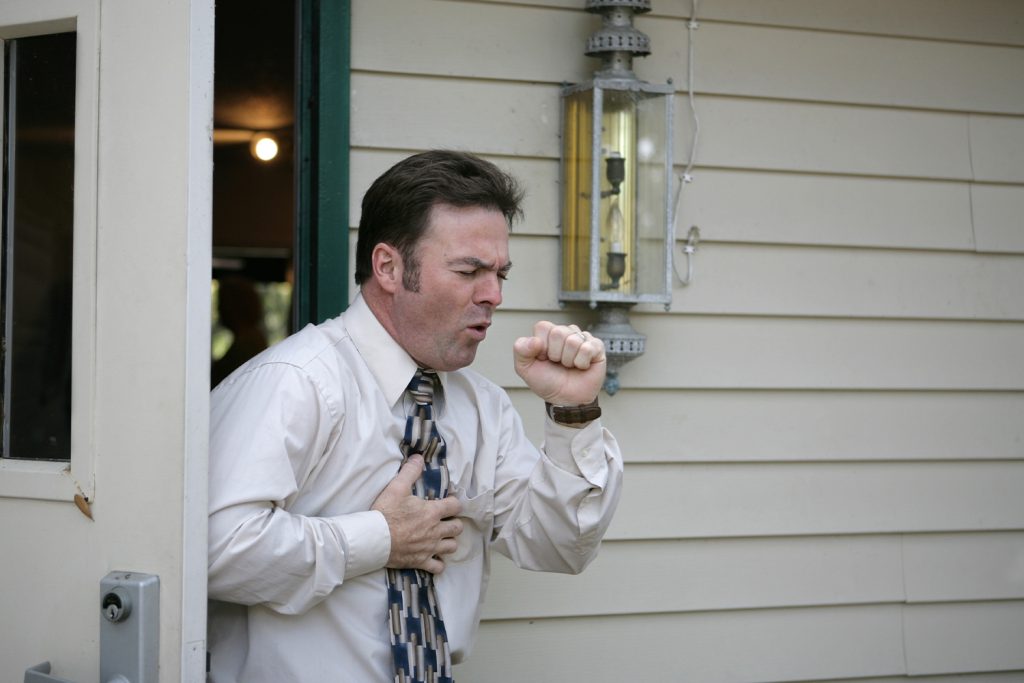Chest Pains, What Could They Be?
Chest pain can have many causes, and while not all reasons are serious or life-threatening the truth is you should never ignore chest pains.
How Common Is Chest Pain?
Chest pain is the second most common reason Americans visit the ER, with an estimated 8 million emergency room yearly visits.
Although most people fear going to the ER, visiting one is the best option when you experience severe or unexplained chest pain because a timely and accurate diagnosis can help save your life.
What Is Chest Pain?
Chest pain is pain or discomfort in your chest area, which extends from the base of the neck to the upper abdominal area and can also spread to nearby areas, such as your arms, shoulders, back, jaw, and neck.

Most Common Causes of Chest Pain
Many conditions can result in chest pain; these are some of the most common:
Heart and Cardiovascular Problems
- Heart Attack
- Coronary Artery Disease (CAD)
- Myocarditis
- Pericarditis
Warning Signs of Heart and Cardiovascular Problems
- Cheat pain, feeling tightness or pressure in the chest area, general chest discomfort
- Pain in the upper abdominal area, back, neck, or jaw
- Weakness, numbness, pain, or coldness in the legs or arms (could signal a narrowing in the blood vessels)
- Unexplained shortness of breath or difficulty breathing
- Loss of consciousness or near fainting
- Feeling lightheaded or dizzy
- Racing heartbeat (tachycardia)
- Irregular heartbeat (pounding or fluttering)
- Slow heartbeat (bradycardia)
- Changes in skin coloration (pale gray or blue skin or lips)

Respiratory Issues
Lung conditions can also manifest as chest pain. These are common respiratory issues that could result in chest pain.
- Pneumonia
- Collapsed Lung (Pneumothorax)
- Asthma
Warning Signs of Respiratory Problems
- Tightness or pain in the chest area
- Difficulty breathing (feeling like you are not getting enough oxygen)
- Increased breathing rate
- Wheezing, coughing
- Sweating with no signs of a fever or physical exertion
- Retractions (chest sinks in just below the neck or under the breastbone with each labored breath)

Gastrointestinal Problems
Many digestive disorders can result in chest pain due to the organ’s proximity to the heart and shared nerve network.
- Gastroesophageal Reflux Disease (GERD) – Acid Reflux
- Peptic Ulcers
- Muscle Spasms in Your Esophagus
Warning Signs of Gastrointestinal Problems
- Upper abdominal discomfort or chest pain
- Burning stomach pain
- Acid reflux (heartburn)
- Vomiting or coughing blood
- Bloody stools
- A burning sensation in your chest (heartburn)

How Are Chest Pains Diagnosed
Only a doctor’s evaluation can determine the source of your chest pain. At Supreme Care ER, we have licensed, experienced emergency doctors, radiology, and clinical laboratory technicians on-site to help expedite your diagnosis.
Test
- Electrocardiogram or EKG
- Blood market tests
- Chest X-rays
- Computerized tomography (CT) scan
- Coronary catheterization (angiogram)
- Ultrasound

When to Go to The ER for Chest Pain
You should seek medical attention if you experience severe, sudden chest pain. Call 911 or have someone drive you to the nearest ER if you have any of the following symptoms:
- Chest pain that spreads to the jaw, back, or left arm
- Severe chest pain that lasts more than a few minutes
- Sudden, unexplained sharp pain accompanied by shortness of breath
- A feeling of pressure, tightness, squeezing or crushing under the breastbone
- Unexplained rapid or irregular heart rate or rapid breathing
- Nausea, excessive sweating, dizziness, confusion, or changes in skin coloration (ashen color)
- A sudden drop in your heart rate or blood pressure

Where to go in Case of an Emergency?
It’s vital to keep a list of hospitals and ER centers near your home in case you suffer a medical emergency.
Call 911 if anyone in your family sustains a life-threatening injury.
At Supreme Care ER, our doors remain open to provide care for you and your family.









